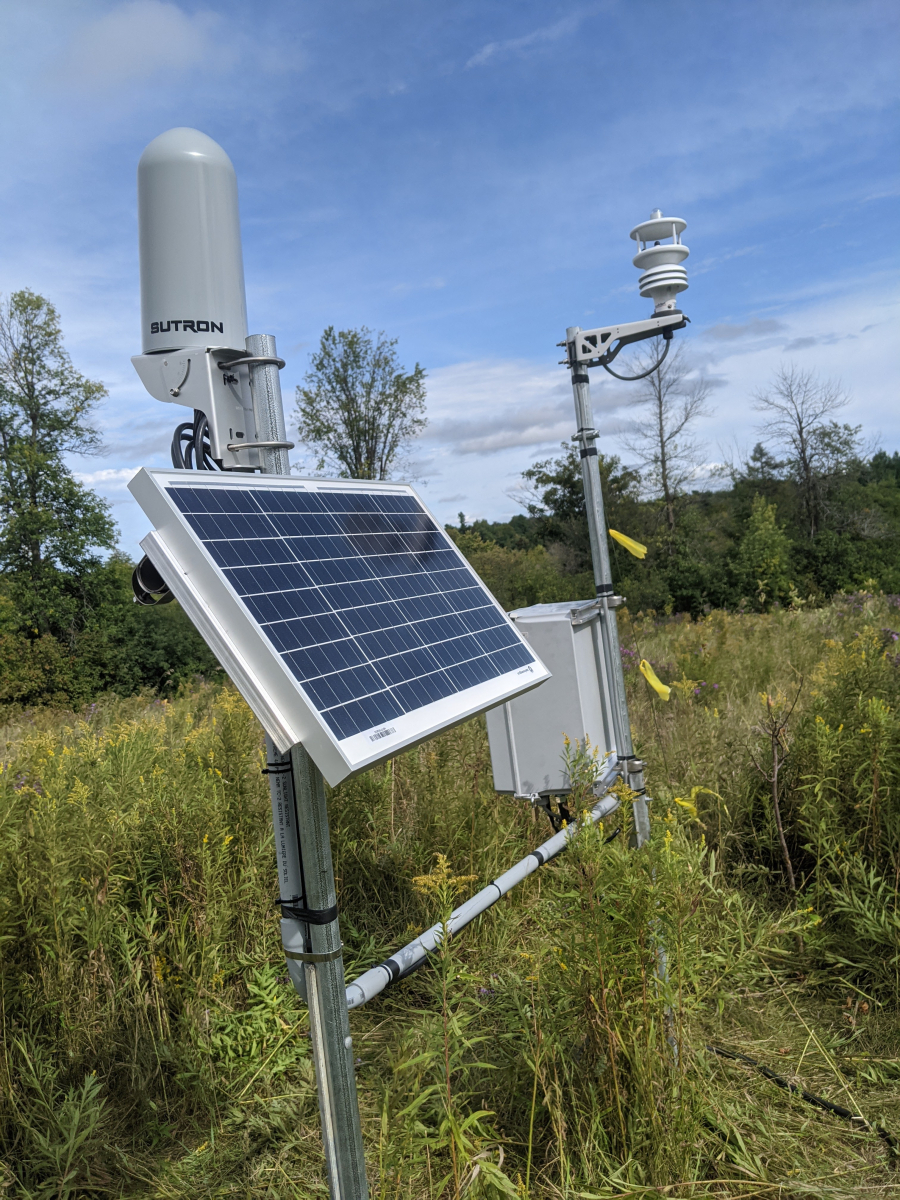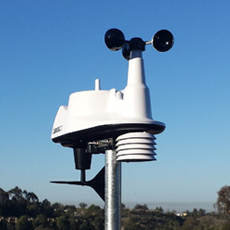Essential Tips for Establishing and Calibrating Your New Weather Stations
Essential Tips for Establishing and Calibrating Your New Weather Stations
Blog Article
Discovering the Different Types of Specialist Weather Stations for Accurate Information Collection
As specialists in the field of meteorology and environmental scientific research, the demand for accurate weather condition information is paramount for notified decision-making and study. When it comes to selecting the appropriate weather condition terminal for information collection, the market provides a range of alternatives customized to various needs and settings. From wireless and digital stations suitable for home use to prosumer and industrial-grade stations made for more sophisticated applications, the variety of options can be overwhelming. Comprehending the abilities and functions of each type is necessary for ensuring trustworthy and exact information collection. Allow's check out the nuances of these professional weather stations to comprehend their special performances and establish the best fit for certain information collection needs.
Digital Climate Stations
In the realm of meteorological instrumentation, electronic weather condition stations attract attention as advanced tools for exact data collection and evaluation. These sophisticated terminals are furnished with sensors that record a vast variety of weather specifications such as temperature, moisture, barometric pressure, wind rate, and instructions. The data accumulated by digital climate stations is sent wirelessly to a central console or a computer system for real-time tracking and evaluation.
Among the key benefits of digital weather condition terminals is their capability to give high-resolution data with precision and reliability. This level of accuracy is important for various applications, consisting of farming, emergency, air travel, and research study reaction. Digital weather condition stations commonly come with software program that permits users to visualize the data in various styles like graphes and graphs, assisting in less complicated analysis and decision-making.
Wireless Climate Terminals
Building on the capacities of digital weather condition stations, wireless weather stations offer enhanced ease and flexibility in data transmission and monitoring. By making use of cordless modern technology, these climate terminals remove the requirement for difficult wired connections, permitting easy installation in numerous areas. The wireless feature enables real-time information surveillance from remote locations, supplying meteorologists and weather condition enthusiasts with instant accessibility to essential details.
Wireless climate stations generally are composed of sensors that accumulate information on temperature, moisture, barometric pressure, wind rate, and direction. These sensors wirelessly send the data to a main console or receiver, where it is processed and presented for analysis. Some progressed wireless climate stations can also link to the internet, permitting users to access their climate data from another location via computer systems or smartphones.

Prosumer Weather Condition Terminals
What distinguishes Prosumer Weather Stations from standard consumer-grade climate terminals? Prosumer Weather Stations bridge the space in between professional-grade and consumer-grade equipment, offering advanced functions and greater precision than regular home climate stations. These stations are created for climate fanatics, amateur meteorologists, and tiny organizations that call for even more precise data than what customer versions can provide.
Prosumer Weather condition Stations usually consist of a bigger array of sensing units to gauge added atmospheric criteria such as UV index, fallen leave dampness, and soil dampness. They additionally have a tendency to have a greater level of sturdiness and dependability, making them suitable for long-term outdoor usage in numerous environmental conditions.


Industrial Weather Terminals
Industrial Weather check it out Stations, additionally referred to as meteorological monitoring systems, are specialized tools made for robust and exact weather condition information collection in industrial settings. These terminals are customized to meet the distinct demands of commercial procedures where exact weather info is critical for safety, effectiveness, and decision-making procedures.
Industrial climate terminals are equipped with sophisticated sensors that can gauge a vast array of meteorological criteria such as temperature, humidity, wind speed and direction, barometric pressure, and precipitation (Weather Stations). These stations are commonly ruggedly constructed to hold up against rough ecological problems typically found in industrial environments
One key feature of industrial weather terminals is their capacity to give real-time information monitoring and analysis. This allows industrial centers to prepare for weather-related threats, maximize procedures based on climate condition, and ensure the safety of employees and tools. Additionally, industrial climate terminals can be integrated into existing commercial control systems for smooth data management and automation.
Mobile Climate Stations
Unlike fixed commercial climate terminals, portable weather terminals provide flexibility and mobility for on-the-go information collection in different environmental setups. These small units are made to be easily transported to various places, making them perfect for area research study, emergency feedback circumstances, agriculture, building and construction sites, and exterior events.
Mobile weather condition stations typically consist of sensing units for measuring specifications such as temperature, humidity, barometric stress, wind speed, and wind instructions. Some advanced versions might also include additional sensors for keeping track of rains, solar radiation, and UV levels. Regardless of their small dimension, portable weather condition terminals can offering accurate and trustworthy data similar to that of bigger, repaired terminals.
Among the essential benefits of mobile weather terminals is their fast deployment and simplicity of arrangement. They can be operational within minutes, permitting rapid data collection and analysis. In addition, these stations can be configured to send real-time information wirelessly, enabling users to check and assess environmental problems from another location. Overall, portable weather condition terminals are important tools for experts calling for mobile, exact, and timely his response weather info in diverse settings.
Verdict
In verdict, expert weather terminals come in numerous kinds such as digital, wireless, prosumer, commercial, and portable. By recognizing the distinctions between these kinds of weather terminals, individuals can make informed choices to ensure they get the most specific and you can look here trustworthy weather condition information for their functions.
)))))
Structure on the capabilities of electronic weather terminals, wireless weather condition stations supply improved convenience and versatility in data transmission and tracking. Some progressed wireless climate stations can also attach to the web, permitting individuals to access their climate data remotely by means of computer systems or smartphones.
Prosumer Climate Stations bridge the gap between consumer-grade and professional-grade devices, supplying more sophisticated attributes and higher accuracy than common home climate terminals. Weather Stations. In general, mobile climate stations are indispensable devices for specialists requiring portable, precise, and prompt climate information in diverse settings
By comprehending the distinctions in between these kinds of weather stations, individuals can make educated choices to guarantee they obtain the most trustworthy and specific weather information for their objectives.
Report this page